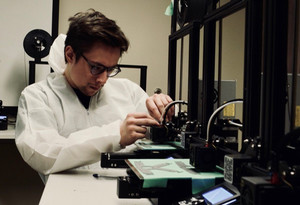Jakob Weirathmueller Colloquium
Fri. Nov. 28 12:30 PM
- Fri. Nov. 28 01:20 PM
Location: 3M63
Projectile Motion to Plastic Surgery: The Long Way Around
What does a physics degree prepare you for when you don’t become a physicist? Far more than some people assume. In this talk, I trace an unconventional path from an undergraduate education in physics at the University of Winnipeg to a career in plastic and reconstructive surgery; a medical specialty that, perhaps surprisingly, shares deep philosophical roots with physics. Unlike much of surgery, plastic surgery is built on solving undefined problems. No two defects, injuries, or reconstructions are identical, and success depends on applying fundamental principles to new situations rather than following procedure-specific algorithms. This way of thinking mirrors the core training of a physicist: building models, working from first principles, and navigating ambiguity with structured reasoning.
Along the way, I’ll highlight how my physics background continues to shape my work; through robotics and surgical simulators, 3D virtual surgical planning and craniofacial reconstruction, optimization algorithms for resident scheduling, and the quiet daily advantages of computational thinking in the operating room. My goal is to offer a perspective for students who may not yet see where their degree can take them: that physics is not a narrow pipeline into academia, but a powerful and portable way of approaching complex, ill-posed problems in whatever domain you choose.
Bio: Jakob Weirathmueller completed his Honours Bachelor’s degree in Physics at the University of Winnipeg before earning his medical degree from the University of Manitoba. He is currently a Plastic and Reconstructive Surgery resident at the University of Ottawa, where his work spans craniofacial reconstruction, burn care, microsurgery, and surgical education. Jakob’s background in physics continues to shape his interests in robotics for surgical simulation, virtual surgical planning, 3D printing, and software development for clinical training and scheduling. His current research includes AI-assisted cranial defect reconstruction, epidemiological studies in pediatric burn care and the development of digital tools to enhance surgical education and workflow efficiency.

